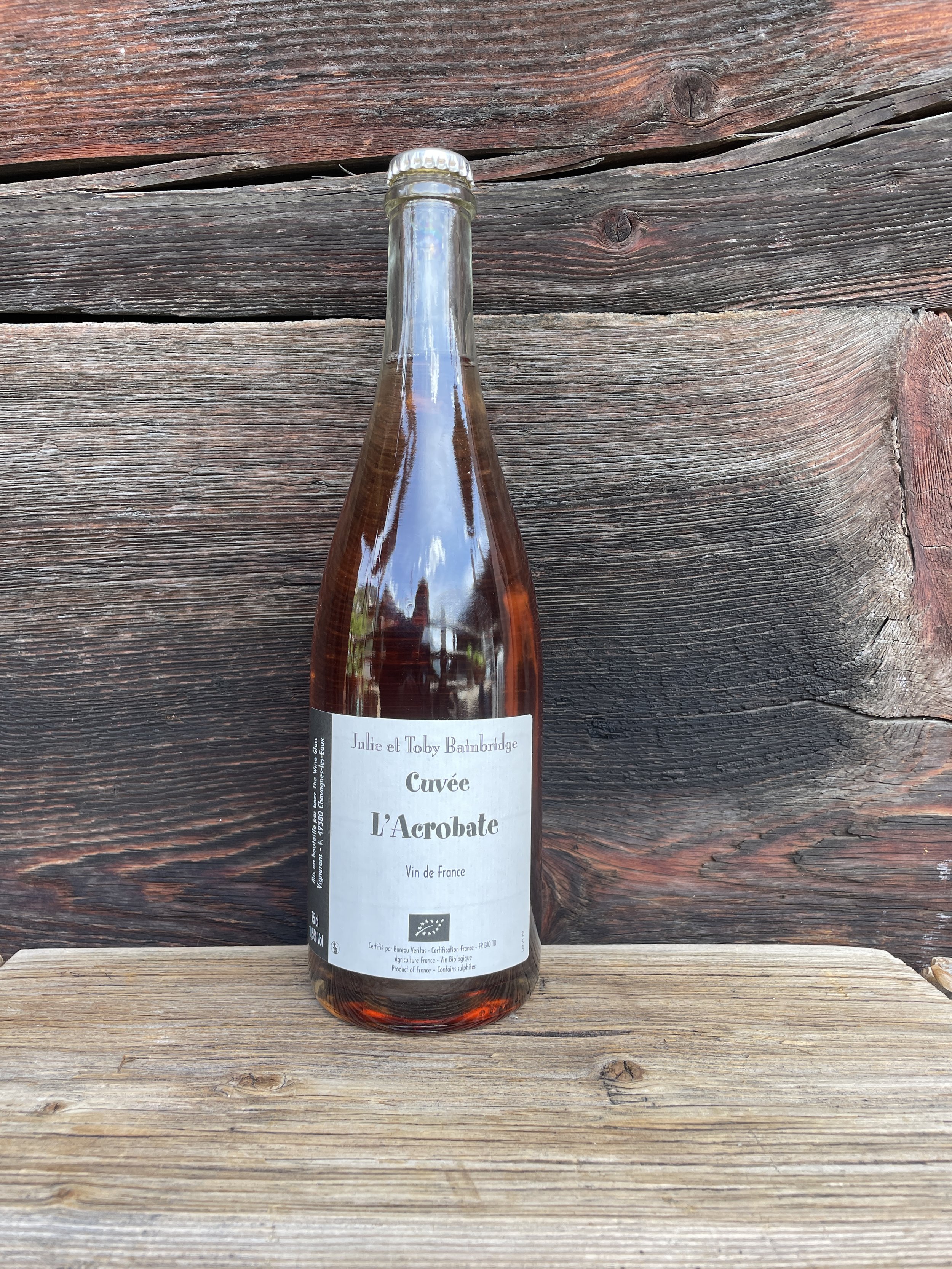


Rosé - Max Sein Wein
11% Pinot Noir / Pinot Meunier.
Overview
Producer: Max Sein Wein, run by Max Baumann, a fourth-generation winemaker in Dertingen, northern Baden, Germany, near the Main River. Max founded his label in 2016, taking over 3.5 hectares of his family’s estate, which was established by his father, Martin, in 1989. He farms biodynamically and produces natural wines with zero sulfur, influenced by his training at Gut Oggau (Austria) and Judith Beck.
Wine Name: Rosé 2021, a natural rosé wine classified as a Vin de Table due to its non-conventional production.
Region: Baden, Germany, specifically the northern part, closer to Frankfurt than Baden-Baden, with shell limestone soils at 320 meters altitude, contributing minerality and freshness.
Characteristics
Grape Varieties:
Most sources indicate Pinot Meunier (known as Schwarzriesling in Germany) for Max Sein Wein’s rosé, particularly for the 2020 vintage.
However, for the 2021 vintage, some sources specify Pinot Noir (Spätburgunder), with 24-year-old vines directly pressed to produce the rosé.
One source mentions Max planting a new Spätburgunder vineyard at high altitude for his rosé, suggesting Pinot Noir for 2021.
Given the 2021 focus on Pinot Noir in detailed descriptions, it’s likely the primary grape, though Pinot Meunier may still be used in blends or other vintages.
Vinification:
Direct press method, where Pinot Noir grapes are pressed immediately to limit skin contact, resulting in a pale, vibrant rosé.
Fermented spontaneously with native yeasts in tanks and large, old wooden barrels, remaining on solids (lees) for 9 months to add texture and complexity.
Unfined, unfiltered, and zero sulfur added, aligning with Max’s hands-off, natural winemaking philosophy.
Bottled after 9–10 months in wood and an additional 6 months of bottle rest before release, ensuring stability despite no additives.
Rosé - Max Sein Wein
11% Pinot Noir / Pinot Meunier.
Overview
Producer: Max Sein Wein, run by Max Baumann, a fourth-generation winemaker in Dertingen, northern Baden, Germany, near the Main River. Max founded his label in 2016, taking over 3.5 hectares of his family’s estate, which was established by his father, Martin, in 1989. He farms biodynamically and produces natural wines with zero sulfur, influenced by his training at Gut Oggau (Austria) and Judith Beck.
Wine Name: Rosé 2021, a natural rosé wine classified as a Vin de Table due to its non-conventional production.
Region: Baden, Germany, specifically the northern part, closer to Frankfurt than Baden-Baden, with shell limestone soils at 320 meters altitude, contributing minerality and freshness.
Characteristics
Grape Varieties:
Most sources indicate Pinot Meunier (known as Schwarzriesling in Germany) for Max Sein Wein’s rosé, particularly for the 2020 vintage.
However, for the 2021 vintage, some sources specify Pinot Noir (Spätburgunder), with 24-year-old vines directly pressed to produce the rosé.
One source mentions Max planting a new Spätburgunder vineyard at high altitude for his rosé, suggesting Pinot Noir for 2021.
Given the 2021 focus on Pinot Noir in detailed descriptions, it’s likely the primary grape, though Pinot Meunier may still be used in blends or other vintages.
Vinification:
Direct press method, where Pinot Noir grapes are pressed immediately to limit skin contact, resulting in a pale, vibrant rosé.
Fermented spontaneously with native yeasts in tanks and large, old wooden barrels, remaining on solids (lees) for 9 months to add texture and complexity.
Unfined, unfiltered, and zero sulfur added, aligning with Max’s hands-off, natural winemaking philosophy.
Bottled after 9–10 months in wood and an additional 6 months of bottle rest before release, ensuring stability despite no additives.






